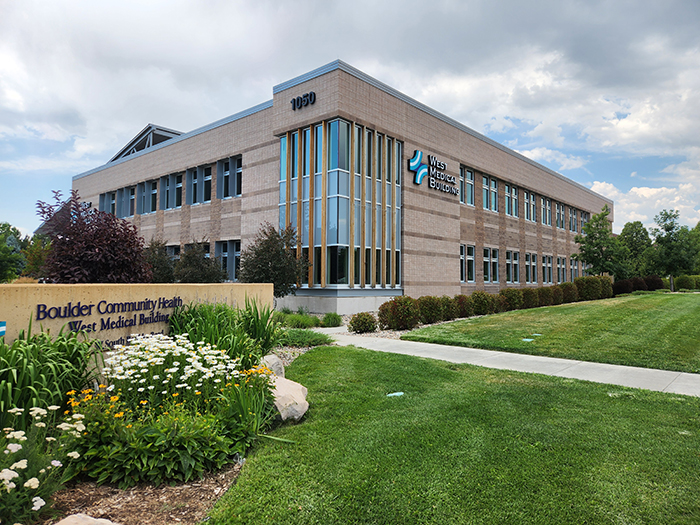
Five years ago, Guardian Glass Hybrid Vacuum IGTM windows were installed in a Boulder, Colorado, medical building. Now, Guardian Glass is analyzing the results and reviews of how these windows have held up in this environment.
Boulder Community Health Center West Medical Building in Lafayette, Colorado, is home to an eye clinic and ambulatory surgery center. The surgery center consists of two operating rooms and an area for retinal laser procedures. The building has accommodations for four to five medical practices.
“This building really showcases the combination of Guardian low-emissivity coatings to minimize thermal radiation and vacuum insulating glass for insulation performance in a high desert climate like Denver,” says Jason Blush, advanced IG product manager, Guardian Americas.
Guardian Glass' involvement
Guardian Glass’ collaboration with Boulder Associates led the architecture firm to specify 318 Guardian Hybrid Vacuum IGTM windows for the nearly 30,000-square-foot facility. Completed in 2019, this building was the first new construction project to install Guardian Hybrid Vacuum IG windows, which combine the performance of VIG and the additional benefits of a traditional insulating glass unit.
This area of Colorado is known for significant temperature fluctuations and abundant sunshine. Combined with the architect’s commitment to environmental stewardship meant Boulder Associates had a unique challenge to balance the two, making this project an ideal test site for an innovative, energy-efficient design.
To align with the client's goals of stable interior temperatures and year-round energy efficiency, the architect collaborated closely with the Guardian Glass team during this pilot project for the energy-efficient glazing prototype.
Hybrid Improves Healthcare Built Environment
The architect specified Guardian Hybrid VIG windows for the building because of the product’s thermal insulation performance. Reducing the transfer of heat or cold through the glass helps deliver stable room temperatures and better energy efficiency to the building when comparing with standard double IGU configurations. Guardian Hybrid VIG units also deliver sound insulation to help contribute to a quiet indoor environment not polluted by external noise.
The Guardian Hybrid VIG units for the Boulder Community Health Center West Medical Building feature Guardian SunGuard SNX 62/27 low-e coating on surface 4. SunGuard SNX 62/27 low-e coated glass helps the building achieve energy-saving performance while balancing light transmission and reflectivity. The south, west and east elevation units also have SunGuard SNX 62/27 coating on surface 2 to further support the building’s energy efficiency.
Analyzing results five years in
Five years after installation, each window was evaluated with thermal imaging equipment. The Guardian Hybrid VIG surface temperature was 5 degrees Fahrenheit warmer than the traditional IG (interior temperature of the building was 64 degrees Fahrenheit).
Analysis of all the windows in the building revealed that one of the Guardian Hybrid Vacuum IGTM units failed, giving the installation a 99.7% success rate (314/315), which is consistent with traditional IG installations. When analyzed, the failed VIG had a diminished insulative performance comparable to the traditional IG but did not completely lose its vacuum.
Property manager and occupant interviews revealed the employees were pleased with their comfort levels regarding temperature and acoustics.
"Having been available for over two decades, vacuum insulated glass has established its presence in the market; however, the advent of tempered VIG marks a revolutionary shift,” says Blush. “The thermal performance of tempered VIG, offering R-values twice that of its non-tempered counterpart, coupled with its enhanced strength, paves the way for its application in the commercial sector. This technology is poised to help reduce energy consumption and concurrently diminish the operational and embodied carbon footprint of the built environment."